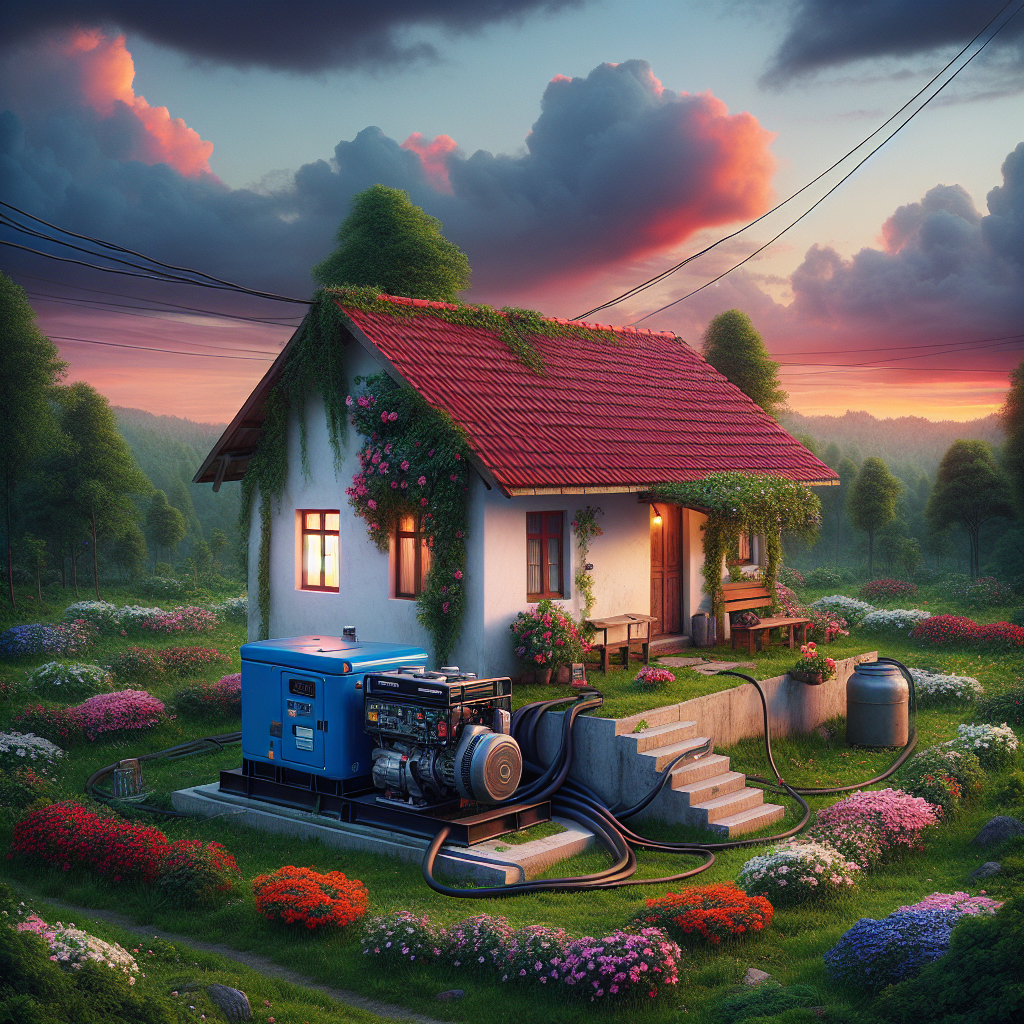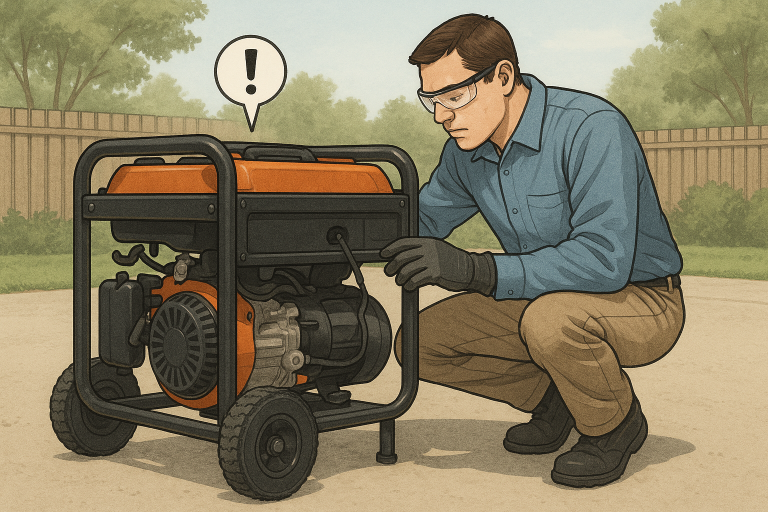How Do Generators For Homes Work? Understanding Backup Power Mechanics
Generators are lifelines during power outages, but how do they actually create electricity for your home? This guide breaks down the science, components, and processes that allow generators to turn fuel into usable power—keeping your lights on and appliances running.
The Core Principle: Electromagnetic Induction
At the heart of every generator is electromagnetic induction, the process of converting mechanical energy into electrical energy. Here’s how it works:
- Fuel Powers the Engine:
Generators use gasoline, propane, diesel, or natural gas to fuel an internal combustion engine. When the engine runs, it spins a crankshaft. - The Alternator Converts Motion to Electricity:
The spinning crankshaft rotates a rotor (a magnet or electromagnet) inside the alternator. Surrounding the rotor is the stator, a set of copper coils. As the rotor spins, its magnetic field passes through the stator coils, inducing an electrical current. - Voltage Regulation:
A voltage regulator stabilizes the output to ensure safe, consistent power for your home’s devices. Without this, voltage spikes could damage electronics. - Transfer to Your Home:
The electricity flows through a transfer switch, which isolates your home from the grid during an outage and directs generator power to your circuits.
Key Components of a Home Generator
1. Engine
- Burns fuel to create mechanical energy.
- Size determines power output (e.g., 5kW engines support essentials; 20kW engines power entire homes).
2. Alternator
- Contains the rotor (rotating magnet) and stator (stationary coils).
- Converts the engine’s mechanical energy into electrical energy.
3. Fuel System
- Tanks or lines store and deliver fuel (gas, propane, diesel).
- Standby generators often connect to home natural gas lines for unlimited runtime.
4. Voltage Regulator
- Maintains a steady flow of electricity (120/240V) to prevent appliance damage.
5. Cooling & Exhaust Systems
- Prevent overheating and vent harmful gases like carbon monoxide.
6. Transfer Switch
- Critical safety device that disconnects your home from the grid and routes generator power.
How Different Generator Types Apply This Process
Portable Generators
- Mechanics: Smaller engines (3,000–8,500W) power the alternator. Electricity is delivered via outlets or extension cords.
- Usage: Manually started; ideal for powering select appliances like fridges or lights.
Standby Generators
- Mechanics: Large engines (10,000–50,000W) paired with permanent alternators. Automatically activate via a transfer switch during outages.
- Usage: Powers entire homes; integrates with natural gas lines for continuous operation.
Inverter Generators
- Mechanics: Engine spins at variable speeds to produce AC power, which is then converted to DC and back to “clean” AC for sensitive electronics.
- Usage: Lightweight and quiet, ideal for phones, laptops, or small appliances.
The Connection Process: Linking Generators to Home Circuits
- Manual Connection (Portable Generators):
- Use heavy-duty extension cords to plug appliances directly into the generator.
- For partial home power, a manual transfer switch can be installed to safely connect circuits.
- Automatic Connection (Standby Generators):
- An automatic transfer switch (ATS) monitors grid power. When an outage occurs, it disconnects the grid and activates the generator within seconds.
⚠️ Critical Safety Rule: Never backfeed power by plugging a generator into a wall outlet. This can electrocute utility workers and damage your home’s wiring.
Why Fuel Type Matters for Efficiency
- Gasoline: Common but less efficient; degrades in 6–12 months.
- Propane: Cleaner, stores indefinitely, and works in cold weather.
- Diesel: High energy density; ideal for frequent/long-term use.
- Natural Gas: Unlimited supply for standby generators but requires pre-installed home gas lines.
Final Word: How Generators Keep Your Home Running
Generators rely on precise engineering—combustion, magnetic fields, and electrical conversion—to turn fuel into emergency power. Whether you choose a portable unit for essentials or a standby system for whole-home coverage, understanding these mechanics ensures you pick a generator that aligns with your needs.
Need Help? Consult a licensed electrician to assess your home’s power requirements and install a compliant, safe system.


